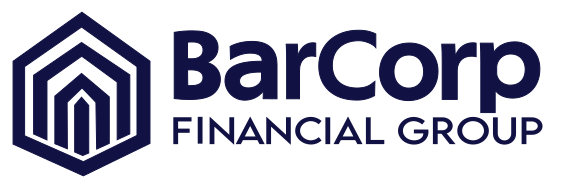
How Does It Work Foreign National Mortgages Loans in Florida?.
Foreign National Mortgage Loans in Florida work in a manner similar to traditional mortgages but are tailored to the specific needs and circumstances of non-U.S. citizens looking to purchase property in the state. Here’s an overview of how these loans typically work:
- Eligibility Criteria: Foreign nationals interested in obtaining a mortgage in Florida must meet certain eligibility criteria set by the lender. This may include factors such as visa status, financial stability, and the purpose of the property (investment, vacation home, etc.).
- Loan Amount: Borrowers can apply for loan amounts up to $50 million, depending on the lender and the specific loan program. The amount approved is often based on factors like the borrower’s income, down payment, and the property’s value.
- Down Payment: Foreign National Mortgage Loans typically require a down payment, and the standard is often around 20% or more of the property’s purchase price. Some lenders may offer options with lower down payments, but a substantial upfront payment is common.
- Loan Terms: Borrowers can choose from various loan terms, typically ranging from 15 to 30 years. The loan term determines the duration of the repayment period.
- Interest Rates: These loans may have higher interest rates compared to traditional mortgages due to the perceived higher risk associated with lending to foreign nationals. Borrowers should carefully consider the interest rate and its impact on the overall cost of the loan.
- No U.S. Credit History Required: One notable feature is that Foreign National Mortgage Loans do not require a U.S. credit history. This is beneficial for non-U.S. citizens who have not established credit in the United States.
- Acceptable Income Sources: Lenders may consider various sources of income, including income from foreign employment, rental income, and other documented revenue streams.
- Documentation Requirements: Borrowers are typically required to provide extensive documentation, including a passport, proof of income, proof of employment, and other relevant financial information.
- Occupancy: These loans are generally designed for investment properties, meaning the borrower does not need to occupy the property as their primary residence.
- Property Types: Foreign National Mortgage Loans may be applicable to various property types, including single-family homes, condos, multi-family units, and short-term rentals.
- Application Process: Borrowers go through a standard mortgage application process, including submitting the necessary documents, undergoing a credit check, and having the property appraised.
- Title: The property can be titled in the individual borrower’s name or in the name of an LLC/Corporation.
It’s essential for prospective borrowers to work closely with lenders offering Foreign National Mortgage Loans in Florida to understand the specific terms, conditions, and documentation requirements associated with the loan program they are considering.
How does the eligibility process work for foreign nationals seeking mortgage loans in Florida?.
The eligibility process for foreign nationals seeking mortgage loans in Florida involves several key considerations. While the specific requirements may vary among lenders, here is a general overview of the factors involved:
- Visa Status and Residency:
- Lenders often consider the visa status and residency of foreign nationals. Some may require certain types of visas or residency status to qualify for a mortgage.
- Income Verification:
- Foreign nationals need to provide proof of income to demonstrate their ability to repay the loan. This may include employment verification, income statements, and other financial documentation.
- Credit History:
- Lenders assess the credit history of foreign nationals to determine their creditworthiness. A strong credit history can improve eligibility for a mortgage loan.
- Down Payment Requirements:
- Foreign nationals may be required to make a higher down payment compared to domestic borrowers. Lenders often see a larger down payment as a way to mitigate risk.
- Global Debt-to-Income Ratio:
- Lenders evaluate the borrower’s debt-to-income ratio, considering both domestic and international financial obligations. This helps ensure that the borrower can manage their debt responsibly.
- Bank Statements:
- Foreign nationals are typically required to provide bank statements to verify their financial stability. Lenders may analyze these statements to assess the borrower’s ability to make mortgage payments.
- Legal and Regulatory Compliance:
- Lenders must adhere to legal and regulatory requirements when providing mortgage loans to foreign nationals. This includes compliance with anti-money laundering laws and other financial regulations.
- Property Type and Location:
- The type and location of the property being financed can impact eligibility. Some lenders may have restrictions on certain property types or locations, and they may assess the risk associated with the property.
- Currency Exchange Considerations:
- Foreign nationals may need to consider currency exchange rates, especially if they earn income in a different currency. Lenders may have specific policies regarding currency exchange and income verification.
- Legal Counsel:
- It is advisable for foreign nationals to seek legal counsel to navigate any legal complexities associated with obtaining a mortgage in a foreign country, including compliance with U.S. laws.
It’s important for foreign nationals to work with experienced mortgage brokers or lenders familiar with the unique requirements for international borrowers in Florida. Additionally, each lender may have its own set of criteria, so potential borrowers should shop around to find a lender that best suits their needs.
What are the specific requirements and documentation needed for foreign nationals to secure mortgage loans in the state of Florida?.
Specific requirements and documentation needed for foreign nationals to secure mortgage loans in the state of Florida may vary among lenders, but here are common documents and criteria often requested:
- Valid Passport and Visa:
- A valid passport and visa are typically required to establish the foreign national’s identity and legal status in the United States.
- Income Verification:
- Proof of income is crucial. This may include recent pay stubs, employment verification letters, or tax returns. Lenders want to ensure that the borrower has a stable income to repay the mortgage.
- Credit History:
- Foreign nationals may need to provide a credit report from their home country or an international credit agency. Lenders use this information to assess the borrower’s creditworthiness.
- Bank Statements:
- Recent bank statements from both domestic and international accounts may be required. These statements help verify the borrower’s financial stability and ability to make mortgage payments.
- Down Payment:
- Foreign nationals often need to make a larger down payment compared to U.S. citizens. The down payment requirements can vary, but it’s not uncommon for lenders to request a substantial percentage of the property’s purchase price.
- Employment Verification:
- Verification of employment, including job position, duration, and salary, helps lenders assess the borrower’s financial capacity.
- Proof of Residence:
- Some lenders may require proof of residence in the foreign national’s home country. This could include utility bills or other documents that establish a residential address.
- Legal Documentation:
- Legal documents such as a property purchase contract, property appraisal, and any legal agreements related to the property may be needed.
- Foreign Tax Returns:
- In some cases, lenders may request copies of the borrower’s foreign tax returns to gain a comprehensive understanding of their financial situation.
- Social Security Number or ITIN:
- While not always mandatory, having a Social Security Number (SSN) or an Individual Taxpayer Identification Number (ITIN) can facilitate the mortgage application process.
- Currency Exchange Documentation:
- If the borrower’s income is in a currency other than U.S. dollars, documentation related to currency exchange rates and income conversion may be required.
It’s important to note that the specific requirements can vary, and some lenders may have additional criteria. Working with a mortgage broker or lender experienced in dealing with foreign nationals in Florida can help streamline the process and ensure that all necessary documentation is provided. Additionally, seeking legal advice may be beneficial to navigate any legal complexities associated with obtaining a mortgage as a foreign national.
How do lenders typically assess the creditworthiness of foreign nationals applying for mortgage loans in Florida?.
Lenders typically assess the creditworthiness of foreign nationals applying for mortgage loans in Florida through a combination of traditional credit evaluation methods and additional considerations due to their international status. Here are the key factors that lenders commonly take into account:
- International Credit Reports:
- Lenders may request credit reports from international credit bureaus or agencies to assess the foreign national’s credit history in their home country. These reports provide insights into the borrower’s payment history, outstanding debts, and overall creditworthiness.
- U.S. Credit Reports (if available):
- If the foreign national has established credit in the United States, lenders may also consider U.S. credit reports. This includes information on credit cards, auto loans, or any previous mortgages held in the U.S.
- Credit Score:
- Lenders use credit scores as a numerical representation of an individual’s creditworthiness. The credit score is often based on factors such as payment history, outstanding debts, length of credit history, types of credit used, and new credit.
- Debt-to-Income Ratio:
- The debt-to-income ratio is a measure of the borrower’s ability to manage additional debt. Lenders assess the ratio of the borrower’s monthly debt payments to their gross monthly income.
- Proof of Income:
- Lenders carefully review the foreign national’s proof of income, which may include pay stubs, employment verification letters, or tax returns. A stable and sufficient income is crucial for demonstrating the ability to make mortgage payments.
- Down Payment:
- The amount of down payment made by the borrower is a significant factor. Foreign nationals often need to make a larger down payment, and a substantial down payment can positively influence the lender’s perception of risk.
- Residency Status:
- Lenders may consider the foreign national’s residency status in the U.S. and the terms of their visa. Some visas may be more favorable for mortgage approval than others.
- Financial Stability:
- Lenders assess the overall financial stability of the borrower, considering factors such as the stability of income, employment history, and any financial reserves.
- Currency Exchange Considerations:
- If the borrower’s income is in a currency other than U.S. dollars, lenders may consider the potential impact of currency exchange rates on the borrower’s ability to make mortgage payments.
- Legal Compliance:
- Lenders ensure that the foreign national’s mortgage application complies with U.S. laws and regulations. This includes verifying the legal status of the borrower and their eligibility to own property in the U.S.
It’s important for foreign nationals to proactively provide comprehensive documentation to support their creditworthiness. Working with lenders or mortgage brokers experienced in handling international transactions can help streamline the process and address any unique challenges associated with obtaining a mortgage as a foreign national in Florida.
What types of mortgage products and terms are commonly available for foreign nationals in the Florida real estate market, and how do they differ from domestic loans?.
Mortgage products and terms for foreign nationals in the Florida real estate market may vary among lenders, but there are common types of loans and distinctive features compared to domestic loans. Here are some typical mortgage products and terms available for foreign nationals:
- Foreign National Mortgage:
- This is a specialized mortgage product designed specifically for non-U.S. citizens. It may have different eligibility criteria, down payment requirements, and interest rates compared to traditional domestic mortgages.
- Fixed-Rate Mortgages:
- Foreign nationals may be eligible for fixed-rate mortgages, where the interest rate remains constant throughout the loan term. This provides stability in monthly payments, making budgeting more predictable.
- Adjustable-Rate Mortgages (ARM):
- ARMs are mortgages with interest rates that can change over time. Foreign nationals may have the option to choose an ARM, which typically starts with a lower interest rate that adjusts periodically based on market conditions.
- Interest-Only Mortgages:
- Some lenders offer interest-only mortgages where the borrower pays only the interest for a certain period, usually the initial years of the loan. This can result in lower initial monthly payments.
- Stated Income Loans:
- Stated income loans allow borrowers to state their income without extensive documentation. However, interest rates may be higher, and the borrower must have a substantial down payment.
- Higher Down Payment Requirements:
- Foreign nationals often face higher down payment requirements compared to domestic borrowers. The down payment can range from 20% to 50% of the property’s purchase price, depending on the lender and the borrower’s qualifications.
- Shorter Loan Terms:
- Some lenders may offer shorter loan terms for foreign nationals, such as 15 or 20 years. Shorter terms can result in higher monthly payments but may be attractive due to lower overall interest costs.
- Currency Exchange Considerations:
- Lenders may have specific policies regarding currency exchange. Borrowers who earn income in a foreign currency may need to consider potential currency fluctuations and discuss options with lenders.
- Reserve Requirements:
- Lenders may require foreign nationals to have a certain amount of reserves or liquid assets as a financial cushion. This demonstrates the borrower’s ability to cover mortgage payments and other expenses.
- Legal and Regulatory Compliance:
- Foreign nationals may need to comply with additional legal and regulatory requirements. It’s essential to work with lenders who understand the unique challenges associated with international transactions.
- Co-Signer Options:
- Some lenders may allow foreign nationals to have a U.S.-based co-signer, such as a family member or friend, to enhance their loan application and increase eligibility.
It’s important for foreign nationals to carefully review the terms and conditions of mortgage products offered by different lenders, considering their financial goals and preferences. Working with mortgage professionals who specialize in international transactions can help foreign nationals navigate the process and find the most suitable mortgage product for their needs.
Can you explain the overall process and steps involved in obtaining a foreign national mortgage loan in Florida, from the initial application to the closing of the loan?.
Certainly, the process of obtaining a foreign national mortgage loan in Florida involves several steps, from the initial application to the closing of the loan. Here’s an overview of the typical process:
1. Preparation and Research:
- Understand Eligibility: Research lenders who offer foreign national mortgage loans and understand their eligibility criteria.
- Credit Preparation: Review and prepare necessary documents, including credit reports, proof of income, and other financial documentation.
2. Engage a Mortgage Professional:
- Mortgage Broker or Lender: Work with a mortgage broker or lender experienced in handling foreign national transactions. They can guide you through the process and help you find suitable loan options.
3. Pre-Qualification:
- Submit Initial Information: Provide basic information to the mortgage professional for pre-qualification. This may include details about income, employment, and credit history.
4. Loan Application:
- Complete Application Form: Once pre-qualified, complete the formal loan application. This involves providing detailed information about your financial history, employment, and the property you intend to purchase.
5. Documentation Submission:
- Submit Required Documents: Provide documentation, including but not limited to passport and visa copies, proof of income, bank statements, and credit reports. Ensure all documents are accurate and up-to-date.
6. Creditworthiness Assessment:
- Lender Review: The lender assesses your creditworthiness, considering factors such as credit history, debt-to-income ratio, and overall financial stability.
7. Loan Approval:
- Underwriting Process: The lender’s underwriting team reviews your application and supporting documents to determine if you meet their lending criteria.
- Conditional Approval: Upon satisfying conditions, you receive conditional approval for the loan.
8. Property Appraisal:
- Appraisal Process: The lender conducts an appraisal of the property to determine its value. This is a standard step in the mortgage process.
9. Title Search and Insurance:
- Title Examination: A title search is performed to ensure there are no outstanding liens or title issues with the property.
- Title Insurance: You may be required to obtain title insurance to protect against unforeseen title defects.
10. Final Loan Approval:
- Final Underwriting: The lender performs a final underwriting review to confirm that all conditions have been met. If everything is satisfactory, the loan is approved.
11. Closing Preparation:
- Closing Disclosure: You receive a Closing Disclosure detailing the final terms of the loan, including closing costs and other fees.
- Coordinate Closing: Coordinate with the closing agent, and ensure all required documentation is in order.
12. Closing:
- Signing Documents: Attend the closing meeting to sign the mortgage documents and other required paperwork.
- Funding: The lender disburses funds to complete the purchase transaction.
13. Post-Closing:
- Ownership Transfer: The property ownership is officially transferred to you.
- Loan Repayment: Begin making monthly mortgage payments according to the terms of the loan.
Additional Considerations:
- Legal Advice: Consider seeking legal advice to ensure compliance with U.S. and international laws.
- Currency Exchange: Plan for any necessary currency exchanges if your income is in a foreign currency.
It’s crucial to work closely with your mortgage professional throughout the process and to address any concerns or questions promptly. The process can vary based on individual circumstances, and having a knowledgeable team can help navigate potential challenges.

